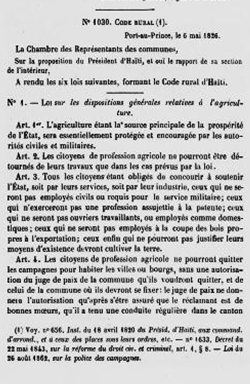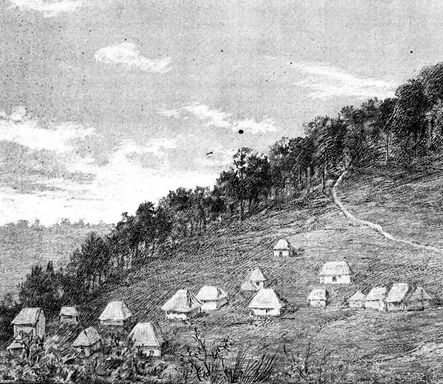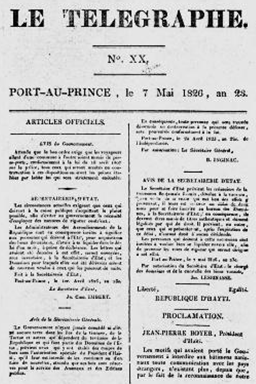"Boyer’s Rural Code" by Paul Moral
An excerpt from Moral’s Le Paysan haïtien: étude sur la vie rurale en Haïti (1961). Moral was a professor in the College of Arts at Dakar University in Senegal.
The fall of Christophe unified the country under the presidency of Boyer. During the next twenty years there was a struggle between the great landowners and the independent peasantry, between exploitation on the large estates and small farming. The discord between the need to grow commercial [cash] crops and the expansion of small farming grew.
To defend the plantations against the encroachment of small land holdings, Boyer’s government used traditional means and tried new tactics. The result was a complicated and tortuous agrarian policy which achieved dubious results and provoked resistance against its erring ways, illusions, and harassments.
After 1820 the coercive policies were strengthened. In April of 1820 new presidential orders regarding workers became more rigorous. The pursuit of vagabonds by the military, crop inspectors, and rural police officers seems to have become more aggressive: "[Boyer] instructed the various patrols which included gendarmes and soldiers to return to work those who had abandoned their labor to either to wander the open roads or to purchase imported flour to make bread which seems to have become a [staple] among the inhabitants of the countryside." Polvérel and Toussaint Louverture’s theses about the relationship between the peasants and the military reappeared: "If the soldier has to fight to protect the fields and guarantee the liberty of the cultivator, then the latter must in turn work in order to feed the soldier."
Whether these vigorous dispositions helped to maintain the integrity of the nation is doubtful. Regardless the administration continued to denounce the illegal settlement on government land and threaten the maroon farmers…. The peasantry won the conflict[… and] the great agrarian drama of the mid-19th century ended with the elimination of the colonial economy.


